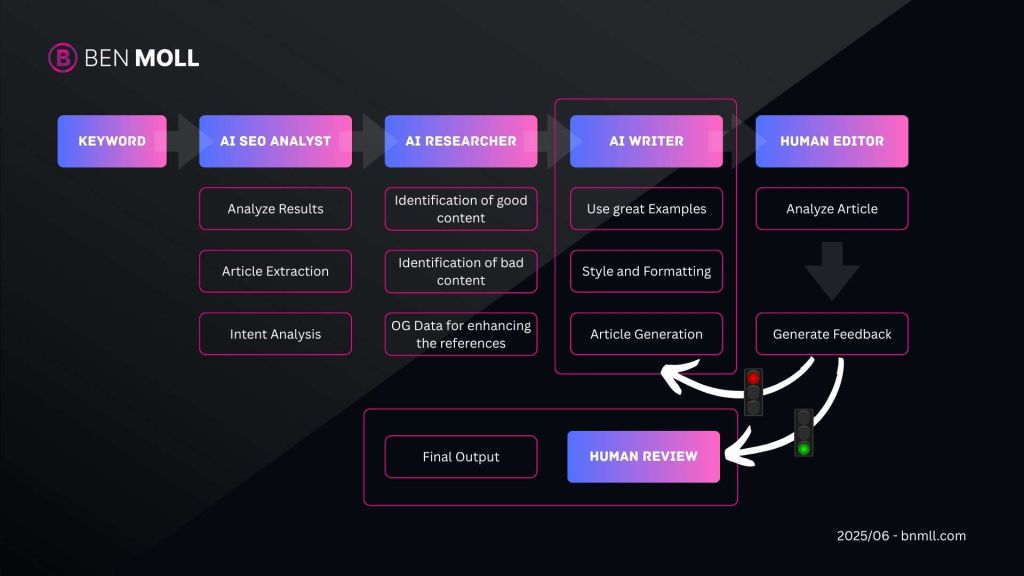In 2025, the fusion of artificial intelligence with search engine optimization is not just an emerging trend redefining how businesses climb the ranks of search engine results pages (SERPs). For mid- to senior-level marketing leaders, embracing AI SEO strategies offers unprecedented opportunities to outsmart competition, optimize content with pinpoint precision, and deliver unmatched user experiences. This article explores the transformative power of AI-driven keyword research, machine learning SEO tools, and predictive analytics for SEO, showing how automation in search optimization is reshaping best practices and driving tangible results.
As digital markets grow more complex and competitive, traditional SEO tactics fall short of meeting evolving user expectations and search engine algorithms. AI technologies fill this gap by processing massive data sets, uncovering hidden patterns, and enabling smarter decision-making. We will delve into real-world SEO case studies 2025, highlight practical applications for technology leaders, and provide strategic insights you can implement now to future-proof your digital marketing. If you want to lead your organization through the next frontier of SEO, this guide will equip you with essential knowledge and actionable next steps.
Understanding AI SEO Strategies: The New Paradigm
AI SEO strategies represent the integration of artificial intelligence technologies such as natural language processing, neural networks, and machine learning algorithms into traditional SEO frameworks. Unlike manual keyword research and backlink building, AI-powered solutions analyze millions of data points instantly, enabling marketers to:
- Generate and prioritize keywords with surgical precision using AI-driven keyword research
- Automate on-page and technical SEO tasks, saving time and improving consistency
- Predict search trend shifts through advanced predictive analytics for SEO
- Create personalized content that aligns perfectly with user intent
- Continuously adapt strategies based on real-time algorithm updates
These capabilities are vital as search engines increasingly focus on semantic understanding, user engagement, and personalized results over sheer keyword density.
Revolutionizing Keyword Research with AI-Driven Tools
One of the pivotal advances in AI SEO strategies is the adoption of AI-driven keyword research tools. Traditional research relied heavily on static keyword lists and historic volume data. Today’s AI tools leverage user behavior, contextual relevance, and competitor insights to surface high-impact opportunities.
Key Benefits of AI-Driven Keyword Research:
- Real-time keyword gap analysis against competitors
- Identification of long-tail and latent semantic indexing (LSI) keywords
- Dynamic adjustments for seasonality and trending topics
- Integration of natural language queries reflecting voice and mobile search

Tools such as SEMrush’s AI capabilities, Clearscope, and MarketMuse utilize machine learning models to rank and prioritize keywords that will generate the most qualified traffic. This precision enables marketers to refine content strategies more quickly and with greater confidence, aligning with evolving search patterns and user intent.
Machine Learning SEO Tools Enhancing Technical and Content Optimization
Machine learning SEO tools play a crucial role in automating tedious and complex search engine optimization tasks. From technical SEO audits to content optimization, AI-powered platforms identify issues and recommend actionable fixes that can be overlooked when done manually.
Applications of Machine Learning SEO Tools:
- Automated site crawls with anomaly detection for broken links and poor crawlability
- Content grading against top-ranking pages to improve relevance and depth
- Optimizing metadata and internal linking structures for enhanced user flow and crawls
- Voice search optimization and snippet identification
For example, BrightEdge’s AI-driven platform utilizes machine learning to prioritize site health issues based on their impact, enabling marketing leaders to allocate resources efficiently. Similarly, AI copywriting assistants analyze top-performing content to suggest improvements that boost both readability and SEO value.
Leveraging Predictive Analytics for SEO Success
Predictive analytics for SEO is a game changer in formulating forward-looking strategies. By analyzing historic search data, user engagement, and algorithm updates, AI models forecast trends such as rising keywords, shifting intent, and backlink potential.
Why Predictive Analytics Matters:
- Anticipate emerging search queries before competitors respond
- Optimize investment in link building through high-value prospect identification
- Adjust content calendars to capitalize on predicted seasonal surges
- Mitigate risks associated with algorithm changes proactively
Marketers who harness predictive analytics can quickly pivot campaigns, allocating resources to channels and content formats that promise the highest return on investment (ROI). Google’s own AI initiatives underscore the growing importance of predictive signals in ranking, demonstrating why 2025 demands an AI-informed SEO roadmap.
Automation in Search Optimization: Scaling Efficiency and Effectiveness
Automation in search optimization reduces manual effort and accelerates SEO workflows, enabling teams to focus on strategic tasks. AI-powered automation covers a broad spectrum:
- Routine technical SEO audits with instant recommendations
- Automated content gap analysis and topic clustering
- AI-generated meta tags, schema markup, and image alt-text
- Scheduling and publishing optimized content at optimal times
- Real-time competitive intelligence and alerting systems
Employing automation tools streamlines multi-channel SEO strategies, supporting scalability for global or enterprise-level campaigns. Agencies and brands that integrate AI-powered automation achieve higher accuracy, faster turnarounds, and measurable improvements in search performance.
Implementing AI SEO Strategies in Your Organization
To successfully integrate AI SEO strategies, marketing leaders should consider the following steps:
- Assess your current SEO maturity: Identify gaps that AI tools can fill efficiently.
- Invest in training: Ensure your team understands AI functionalities and how to interpret data outputs.
- Pilot AI-powered platforms: Start with AI-driven keyword research or automation to measure impact.
- Use data to guide decisions: Move beyond intuition to data-driven SEO strategies enhanced by machine learning.
- Continuously monitor and refine: AI insights evolve; continually optimize strategies accordingly.
Image suggestion: Flowchart showcasing the implementation process of AI SEO strategies within marketing teams (alt-text: “Flowchart of AI SEO strategy integration steps”).
Challenges and Ethical Considerations in AI SEO
Despite the benefits, integrating AI into SEO has challenges. Data privacy, algorithm transparency, and over-reliance on automation pose risks. Leaders should maintain human oversight, adhere to ethical AI principles, and prioritize user-centric SEO rather than purely technical gains.
Ensuring transparency in AI decisions and balancing automation with creativity will define the competitive advantage in the coming years.
Future Trends in AI SEO Strategies for 2025 and Beyond
Looking ahead, expect the following trends to dominate:
- Greater adoption of AI-powered voice and visual search optimization
- Integration of augmented reality signals influencing search results
- Enhanced real-time SEO performance tracking dashboards using AI
- Personalized search experiences driven by AI-based user intent modeling
- Expansion of multi-language AI SEO for global reach
These advancements will deepen AI’s role and make SEO more predictive, automated, and user-focused than ever before.
86.07% of respondents stated that they have integrated AI technologies or tools into their SEO strategy.
Content optimization, keyword research, and content generation were cited as the most common use cases.
Top 5 Takeaways for Marketing Leaders
- AI SEO strategies unlock unmatched precision in keyword research and content optimization.
- Machine learning SEO tools automate technical audits, saving time and increasing accuracy.
- Predictive analytics enable proactive SEO planning and competitive advantage.
- Automation scales SEO efforts while freeing teams to focus on strategy and creativity.
- Ethical integration of AI combined with human expertise drives sustainable success.
Ready to revolutionize your SEO approach with AI? Request a consultation.






